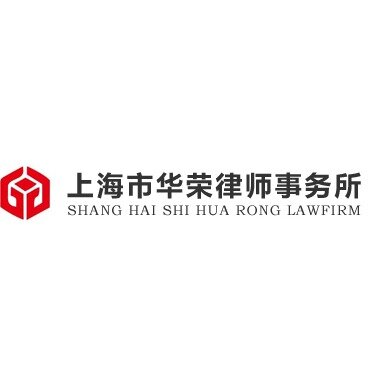Best Franchising Lawyers in China
Share your needs with us, get contacted by law firms.
Free. Takes 2 min.
Or refine your search by selecting a city:
List of the best lawyers in China
About Franchising Law in China
Franchising in China has become a popular method for businesses to expand their brand and scale operations across the vast Chinese market. The regulatory environment for franchising is structured under a combination of national laws, administrative regulations, and local rules. The most significant of these is the "Regulation on the Administration of Commercial Franchise," which outlines the legal framework for franchising activities. This regulation ensures clarity in franchise operations and protects both franchisors and franchisees.
Why You May Need a Lawyer
Legal advice is often necessary in franchising due to the complexity and specificity of franchise agreements and regulatory compliance. Common situations that may require legal assistance include:
- Drafting or reviewing franchise agreements to ensure they comply with Chinese laws.
- Negotiating terms between franchisors and franchisees.
- Ensuring compliance with local regulations and requirements.
- Handling disputes or litigation related to franchising operations.
- Advising on intellectual property rights, marketing regulations, and operational guidelines.
Local Laws Overview
The key aspects of local laws relevant to franchising in China include:
- Disclosure Obligations: Franchisors must provide a disclosure document to the franchisee at least 30 days before signing the franchise agreement. This document contains essential information about the franchisor and the franchise system.
- Record Filing: Franchisors are required to file their franchise with the Ministry of Commerce within 15 days of signing the first franchise agreement.
- Business Experience Requirement: Franchisors must have owned and operated at least one company-owned outlet in China for more than a year.
- Intellectual Property: Franchisors need to ensure trademarks and other IP rights are registered and protected in China to avoid infringement issues.
Frequently Asked Questions
What is required to become a franchisor in China?
To become a franchisor in China, you must have operated at least two outlets anywhere in the world for more than a year. Additionally, the franchise system must be filed with the Ministry of Commerce.
How long does it take to register a franchise in China?
The registration process typically takes around 30 to 45 days, assuming all documentation is in order.
Is a local partner necessary to franchise in China?
While it is not strictly required to have a local partner, having one can significantly assist in navigating the regulatory and cultural landscape more effectively.
What should be included in a franchise agreement?
A franchise agreement in China should include the rights and obligations of both parties, fees, terms of payment, intellectual property rights, and conflict resolution mechanisms.
How can franchisors protect their trademark in China?
Franchisors must register their trademarks with the China National Intellectual Property Administration to ensure legal protection against infringement.
Can franchisees independently change the business model?
No, franchisees are typically required to adhere to the business model stipulated by the franchisor as per the franchise agreement.
What are the common fees involved in franchising?
Common fees include an initial franchise fee, ongoing royalty fees, advertising fees, training fees, and renewal fees, among others.
Is it mandatory to disclose financial performance representations?
Financial performance representations are not mandatory, but if provided, they must be truthful and backed by reasonable substantiation.
What disputes are common in franchising?
Common disputes include marketing practices, breach of contract, termination issues, and intellectual property rights.
Are there any restrictions on foreign franchisors?
While there are no explicit restrictions, foreign franchisors face additional challenges like cultural differences, consumer preferences, and stricter regulatory scrutiny.
Additional Resources
For those seeking further information or assistance regarding franchising in China, the following resources may be helpful:
- The Ministry of Commerce of the People’s Republic of China
- China Council for the Promotion of International Trade (CCPIT)
- The China Franchising Association
- Legal firms specializing in franchising law in China
- International Franchise Association
Next Steps
If you are considering franchising in China and require legal assistance, consider the following steps:
- Consult with a legal expert who specializes in Chinese franchise law to understand the regulatory requirements and compliance issues.
- Conduct thorough due diligence on potential franchisees or franchisors to mitigate risks.
- Prepare and review all documentation carefully with the assistance of legal counsel.
- Establish a strong relationship with local partners and resources to facilitate smoother operations.
- Stay informed about the latest changes in franchising regulations by subscribing to local legal bulletins or newsletters.
Lawzana helps you find the best lawyers and law firms in China through a curated and pre-screened list of qualified legal professionals. Our platform offers rankings and detailed profiles of attorneys and law firms, allowing you to compare based on practice areas, including Franchising, experience, and client feedback.
Each profile includes a description of the firm's areas of practice, client reviews, team members and partners, year of establishment, spoken languages, office locations, contact information, social media presence, and any published articles or resources. Most firms on our platform speak English and are experienced in both local and international legal matters.
Get a quote from top-rated law firms in China — quickly, securely, and without unnecessary hassle.
Disclaimer:
The information provided on this page is for general informational purposes only and does not constitute legal advice. While we strive to ensure the accuracy and relevance of the content, legal information may change over time, and interpretations of the law can vary. You should always consult with a qualified legal professional for advice specific to your situation.
We disclaim all liability for actions taken or not taken based on the content of this page. If you believe any information is incorrect or outdated, please contact us, and we will review and update it where appropriate.
Browse franchising law firms by city in China
Refine your search by selecting a city.











